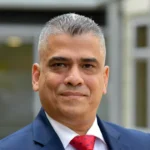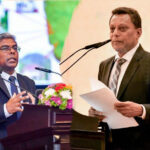
Healthcare Crisis Deepens: Specialists Alarmed by Allegations and Public Mistrust
- CNL Reporter
- July 10, 2025
- Political
- healthcare
- 0 Comments
Behind the News
The Association of Medical Specialists (AMS) has issued an urgent call for an investigation into what it describes as a dangerous trend of misinformation and unethical practices damaging Sri Lanka’s healthcare system and the credibility of its medical professionals.
In a formal letter addressed to Health Minister Dr. Nalinda Jayatissa, the AMS expressed deep concern over non-expert commentary circulating in the media about complex surgical procedures, warning that such speculation is eroding public trust and sparking undue fear among patients.
Signed by AMS President Dr. T.G.Y. Rasika Gunapala and Secretary Dr. R. Gnanasekaram, the letter asserts that unverified claims—particularly those amplified on social media—are undermining the professional integrity of qualified specialists and causing anxiety among patients awaiting life-saving treatment.
The association labeled this as an “unsafe trend” and called for a full technical review by the Ministry of Health, urging it to issue a clear, expert-backed statement to reassure the public.
The appeal comes against the backdrop of a major scandal at Sri Jayewardenepura General Hospital, where a specialist neurosurgeon was arrested and remanded for allegedly selling surgical equipment at inflated prices outside standard procurement protocols.
The Commission to Investigate Allegations of Bribery or Corruption (CIABOC) is leading the inquiry, which has already identified 77 victims and 92 further complaints, with estimated financial losses to patients exceeding Rs. 300 million.
According to investigators, the neurosurgeon bypassed established hospital tender procedures, directing patients to acquire crucial neurosurgical devices—such as external ventricular drains and ventriculoperitoneal shunts—through unofficial channels at much higher costs.
In a disturbing twist, there are allegations that the doctor may have kept clinically dead or non-viable patients on artificial life support to justify the use and sale of these devices.
This has reignited serious ethical debates about the difference between coma and brain death—two conditions often misunderstood but medically and legally distinct.
A coma refers to a deep, unconscious state where some brain function remains, and recovery is sometimes possible. Brain death, on the other hand, is the total and irreversible cessation of all brain activity, including the brainstem, and is legally recognized as death in most jurisdictions.
Performing non-therapeutic surgeries on brain-dead patients—if proven—constitutes a severe violation of ethical and legal medical standards.
Experts emphasize the importance of strict medical protocols for diagnosing brain death and the necessity of obtaining informed consent from families for any procedures involving such patients.
The AMS has highlighted the urgent need for accurate communication and evidence-based assessment to protect both patients and healthcare professionals.
The association is pushing for the Health Ministry not only to clarify facts through expert medical panels but also to ensure the public is fully informed about the legal and ethical standards governing life-support decisions and complex surgeries.
A copy of the AMS’s letter has also been sent to the Health Ministry Secretary, Dr. Anil Jasinghe, reinforcing the association’s call for immediate and transparent action.
As investigations continue, the healthcare sector stands at a critical crossroads. While the alleged misconduct underscores the urgent need for procurement reform and ethical safeguards, the AMS warns that undermining public confidence through speculative commentary may result in lasting damage to patient care and medical morale.

